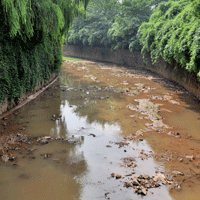MENU
- Home
- Overview
- Attorneys
- Practice Areas
- Firm News
- Blog
- Contact
 Many people are used to having clean water that they take it for granted. Those in certain parts of the world do not have to think twice about water safety and availability, yet it is a daily concern for billions across the globe. Whether it is in their homes, farms, schools, or their work, these disadvantaged people have difficulty accessing safe water. It is often seen as a form of discrimination.
Many people are used to having clean water that they take it for granted. Those in certain parts of the world do not have to think twice about water safety and availability, yet it is a daily concern for billions across the globe. Whether it is in their homes, farms, schools, or their work, these disadvantaged people have difficulty accessing safe water. It is often seen as a form of discrimination.
Access to drinkable, usable water is a basic human right, yet the lack of it is a real emergency for so many, which is why World Water Day was created. It takes place on March 22 and is sponsored by the World Health Organization, Unicef, AquaFed, the United Nations, and other groups. Their goal is to educate, advocate, and focus on why so many are in this crisis.
The water technology company, Bluewater, conducted a survey that reported 28 percent of Americans have been confronted with water contamination from 2016 to 2018. The respondents also expressed concerns about toxic metals, lead, and chemical pollutants in their water. Nine percent said that they had to drink bottled water because of contaminated water supplies. Using plastic bottles creates more waste, which can end up in drinking water; its long-term health effects are not clear.
Bluewater’s president said that plastic bottles are a convenience, and these pollute the planet’s waters. Other sources of water contamination include water products from refineries, waste treatment plants, and factories, even though these practices are regulated. There are also indirect sources, such as groundwater and soils that contain pesticides and fertilizers; automobile and factory emissions also get into the air and water supply. Polluted water can poison people, animals, and ecosystems.
Poorer communities, especially those with older and poorly functioning water systems, can be at a higher risk for toxic water consumption. Without decent water systems, these people are confronted with contaminated water and skyrocketing utility bills. This was seen in Flint, Michigan when lead-contaminated water created a public health crisis in this poverty-stricken area in 2014. The city had changed water suppliers to save money, and this led to corrosion in the pipe system.
Jacobs & Crumplar, P.A. is involved with another water contamination case that involves a lower-income area. It involves Mountaire Farms, a poultry producing factory in Millsboro, Delaware. The company is accused of violating state environmental laws, with allegations that they have contaminated the local groundwater and land. This poses health threats to people living in the area.
Everyone should have access to safe water, but many factors are unjustly preventing many from having a basic human right. This is becoming an issue that spans communities across the globe. If governments start to invest in improving water infrastructures and services without bias, people of all economic and cultural backgrounds can benefit from safer water and better health. World Water Day hopes to raise awareness on this front.
If you and your family are suffering the effects of toxic water, contact an experienced Delaware environmental lawyer at Jacobs & Crumplar, P.A. Call us at 302-656-5445 or complete an online form for a free consultation today. Our offices are in Wilmington and Georgetown, Delaware, where we represent clients in Dover, New Castle County, and Sussex County.